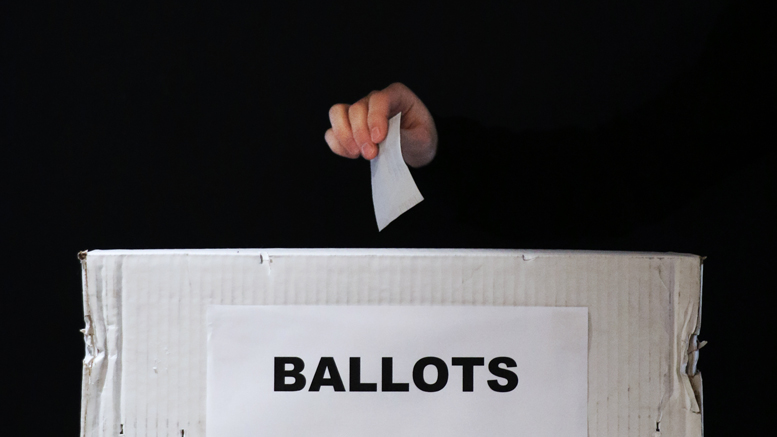Coming in just under the wire, chief returning officers (CRO) for both the upcoming University of Manitoba Students’ Union (UMSU) and University of Manitoba Graduate Students’ Association (UMSGA) general elections were selected the week before nominations opened.
Executive nominations for the UMSU general election opened Feb. 1, only four days after law student Bradley McClelland was named CRO at UMSU’s regular council meeting Jan. 28.
Nominations remain open until Feb. 12, with campaigns officially kicking off Feb. 22. Ballots will be cast March 2-4, with polling stations set up at various locations around campus.
UMSU council chair Kyle Mirecki helmed the selection committee, which included the UMSU president, three members of council and two students-at-large. He said the whole committee was unable to convene until January, resulting in the late appointment.
“The committee conducted a thorough and fair selection process,” Mirecki said.
Isaac Weldon, vice-president of the Arts Student Body Council, criticized the delayed appointment, pointing to UMSU bylaws that call for the position to be filled by Nov. 30 of any given year.
“The selection of CRO at the most recent UMSU council meeting was – along with a lot of other business conducted this year – conducted in a fashion that I believe was too hasty, undemocratic, and unfair to UMSU council as well as all other members of the union,” he said.
Weldon said the selection committee should be vetting candidates and forwarding a recommendation early enough for council to conduct its own due diligence.
“The fact that it was less than a week until nominations for the general election opened that a single CRO candidate was presented to the council is suspicious,” he said.
“In a way, the lack of foresight, whether intentional or not, forced the council’s hand to approve whatever candidate they presented.”
For his part, McClelland told the Manitoban he is working on a feasible plan to ensure a clean election process.
“I am not here to reinvent the wheel,” he said. “The past CRO did an admirable job and I will do my best to implement improvements where they are possible.”
The 2015 campaign resulted in a mixed-slate executive, with no winning candidate surpassing 56-per cent support in a close vote. Final results were not determined until the early hours of the following morning after a rigorous recounting and scrutineering process.
McClelland said he has included guidelines surrounding third-party advertising and is drafting comprehensive rules concerning spoiled ballots, which sparked questions following the 2015 campaign.
“I am hoping to balance students’ rights to spoil a ballot based on dissatisfaction with the need to make sure that votes for candidates are recorded,” he said.
UMGSA General Elections
The UMGSA suffered its own delay in selecting a CRO and only appointed Jessica Whattam to the position the last week of January.
Nominations for the UMGSA executive opened at the beginning of the month and close Feb. 12. The two-week campaign begins Feb. 29 after a preparation period.
UMGSA president Kristjan Mann attributed the delay in appointing a returning officer to a lack of volunteers coming forward to make up the selection committee.
“The committee could not be formed with less than four student representatives and although the position was advertised monthly, we only had the fourth member join at the end of last year,” he said, noting the committee met for the first time in January.
Whattam said that getting ahead of any glitches was a priority for her as CRO, acknowledging tech issues hampered the 2015 graduate student elections when voters could only cast ballots for one senator, rather than two.
However, she lauded the digital ballots, saying online voting allows students researching off-campus an equal opportunity to vote.
“I believe last year was a great election apart from that one hiccup,” she said. “Once again, this year the UMGSA elections are being conducted online. There will be no paper ballots and therefore spoiling [of ballots] is less of a problem.”
Additionally, Whattam said the free flow of information is critical for a fair election.
“If the entire graduate student body has access to the same information at the same time, and knows where to go to get more information should they desire, I believe this is the best way that we can call the election fair,” she said.
UMSGA voting will run from March 14-16.



